Award
-
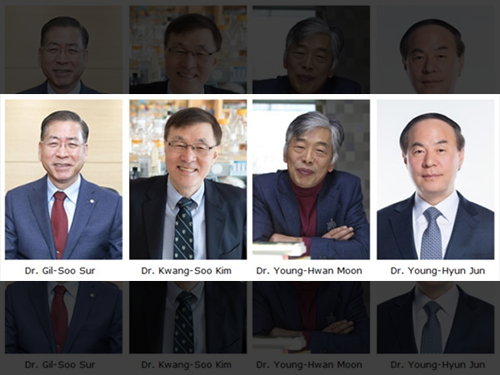 Distinguished Alumni Awardees 2018
The KAIST Alumni Association (KAA) announced four recipients of the Distinguished Alumni Awards 2018. The Distinguished Alumni Awards recognize graduates who have achieved outstanding accomplishments in their professional and personal lives, and who have been an inspiration to fellow alumni and students in Korea and around the globe. Since the establishment of the award in 1992, a total of 99 alumni at home and abroad have been honored as recipients. The awards ceremony will take place during the New Year Alumni Reception on January 19 in Seoul.
Yeungnam University President Gil-Soo Sur (’75 MS, ’78 PhD in Chemistry) has demonstrated leadership in higher education and gained trust in academia for playing a leading role in educational innovation as well as serving as an educator who has fostered outstanding research talents for decades.
Professor Kwang-Soo Kim (’77 MS, ’79 PhD in Life Science) is the director of the Molecular Neurobiology Laboratory at McLean Hospital at Harvard Medical School. He has more than 20 years of experience investigating molecular and developmental neurobiology of the midbrain dopamine neuronal system. He has contributed to developing cell replacement therapy for Parkinson’s disease and has pioneered a generation of safe human-induced pluripotent stem cells through the direct delivery of reprogrammed proteins.
Young-Hwan Moon (’82 MS, ’87 PhD in Chemistry and Biomolecular Engineering) is the CEO of Coretech, which specializes in producing specialty gases and environmental catalysts required for chemical processes. He was recognized for enhancing national competence by securing competitive technology for manufacturing products.
Young-Hyun Jun (’84 MS, ’86 PhD in Electrical Engineering), the CEO of Samsung SDI, is a globally renowned expert in memory semiconductors. By bringing about innovative technology to enhance productivity and processes, he led Samsung Electronics to become the number one company at the global level in the field of semiconductors.
2019.01.14 View 4907
Distinguished Alumni Awardees 2018
The KAIST Alumni Association (KAA) announced four recipients of the Distinguished Alumni Awards 2018. The Distinguished Alumni Awards recognize graduates who have achieved outstanding accomplishments in their professional and personal lives, and who have been an inspiration to fellow alumni and students in Korea and around the globe. Since the establishment of the award in 1992, a total of 99 alumni at home and abroad have been honored as recipients. The awards ceremony will take place during the New Year Alumni Reception on January 19 in Seoul.
Yeungnam University President Gil-Soo Sur (’75 MS, ’78 PhD in Chemistry) has demonstrated leadership in higher education and gained trust in academia for playing a leading role in educational innovation as well as serving as an educator who has fostered outstanding research talents for decades.
Professor Kwang-Soo Kim (’77 MS, ’79 PhD in Life Science) is the director of the Molecular Neurobiology Laboratory at McLean Hospital at Harvard Medical School. He has more than 20 years of experience investigating molecular and developmental neurobiology of the midbrain dopamine neuronal system. He has contributed to developing cell replacement therapy for Parkinson’s disease and has pioneered a generation of safe human-induced pluripotent stem cells through the direct delivery of reprogrammed proteins.
Young-Hwan Moon (’82 MS, ’87 PhD in Chemistry and Biomolecular Engineering) is the CEO of Coretech, which specializes in producing specialty gases and environmental catalysts required for chemical processes. He was recognized for enhancing national competence by securing competitive technology for manufacturing products.
Young-Hyun Jun (’84 MS, ’86 PhD in Electrical Engineering), the CEO of Samsung SDI, is a globally renowned expert in memory semiconductors. By bringing about innovative technology to enhance productivity and processes, he led Samsung Electronics to become the number one company at the global level in the field of semiconductors.
2019.01.14 View 4907 -
 College of Business Honored with the WRDS-SSNR Innovation Award
(Professor Inmoo Lee (far left), Robert Zarazowski (WRDS), Gregg Gordon (SSRN) and Professor Jae Kyu Lee)
The KAIST College of Business received the WRDS (Wharton Research Data Services)-SSNR Innovation Award for the Asia-Pacific region on October 31 during the AACSB Asia-Pacific Conference in Seoul.
The WRDS-SSRN Innovation Award is intended to elevate the visibility of pioneering research across a broad range of financial and economic topics. Three winners are selected annually from across North America, Europe, and the Asia Pacific based on their ability to demonstrate innovation and research excellence.
The award was created through collaboration with SSRN, the world’s leading early-stage research platform and Elsevier, a global information analytics company specializing in science and health. It honors top business schools that produce exceptional data-driven research. A part of the Wharton School of the University of Pennsylvania, WRDS provides global corporations, universities, and regulatory agencies with the thought leadership, data access, and analytics needed to enable impactful research.
The Dean of the College of Business Youngbae Kim, said that KAIST has been taking the lead in responding to global trends, offering many innovative programs such as an MBA for Social Entrepreneurship and the Master Course for Green Growth Management. KAIST already has been selected as the Most Innovative University in the Asia-Pacific Region by Thomson Reuters for the last two years.
Robert Zarazowski, managing director of WRDS said they recognize and support the outstanding achievement taking place at KAIST as well as its commitment to growth and innovation in business education.
2017.11.03 View 8013
College of Business Honored with the WRDS-SSNR Innovation Award
(Professor Inmoo Lee (far left), Robert Zarazowski (WRDS), Gregg Gordon (SSRN) and Professor Jae Kyu Lee)
The KAIST College of Business received the WRDS (Wharton Research Data Services)-SSNR Innovation Award for the Asia-Pacific region on October 31 during the AACSB Asia-Pacific Conference in Seoul.
The WRDS-SSRN Innovation Award is intended to elevate the visibility of pioneering research across a broad range of financial and economic topics. Three winners are selected annually from across North America, Europe, and the Asia Pacific based on their ability to demonstrate innovation and research excellence.
The award was created through collaboration with SSRN, the world’s leading early-stage research platform and Elsevier, a global information analytics company specializing in science and health. It honors top business schools that produce exceptional data-driven research. A part of the Wharton School of the University of Pennsylvania, WRDS provides global corporations, universities, and regulatory agencies with the thought leadership, data access, and analytics needed to enable impactful research.
The Dean of the College of Business Youngbae Kim, said that KAIST has been taking the lead in responding to global trends, offering many innovative programs such as an MBA for Social Entrepreneurship and the Master Course for Green Growth Management. KAIST already has been selected as the Most Innovative University in the Asia-Pacific Region by Thomson Reuters for the last two years.
Robert Zarazowski, managing director of WRDS said they recognize and support the outstanding achievement taking place at KAIST as well as its commitment to growth and innovation in business education.
2017.11.03 View 8013 -
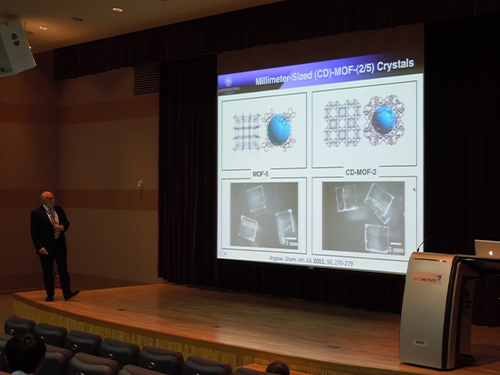 J. Fraser Stoddart, a Former Visiting Professor at KAIST, Wins the 2016 Nobel Prize in Chemistry
J. Fraser Stoddart, who is Northwestern University’s Board of Trustees Professor of Chemistry and head of the Stoddart Mechanostereochemistry Group, received the 2016 Nobel Prize in Chemistry. He shares it with Professor Jean-Pierre Sauvage of the University of Strasbourg in France and Professor Bernard Feringa of the University of Groningen in the Netherlands.
Professor Stoddart’s relationship with KAIST dates to his term as a visiting professor from 2011 to 2013 at the Environment, Energy, Water and Sustainability (EEWS) Graduate School. The Nobel Committee awarded the prize to Professor Stoddart in recognition of his pioneering work on artificial molecular machines, a.k.a., nanomachines.
A molecular machine is an assembly of a discrete number of molecular components designed to perform machine-like movements as the result of appropriate external stimuli. Like their counterparts in the macroscopic world, molecular machines control mechanical movements and rotations in response to an energy input such as chemical reactions, light, or temperature. The most complex molecular machines, for example, are proteins in cells. Chemists have attempted to imitate these structures for potential applications including smart nanomedicines to track diseases such as cancer cells and deliver drugs to fight them. Other applications include next-generation miniature semiconductor chips, sensors, energy storage, space exploration, and armaments.
In 1991, Professor Stoddart developed artificial molecular machines based on a rotaxane. A rotaxane is a mechanically-interlocked molecular architecture in which a dumbbell-shaped molecule is encircled by a molecular ring called a macrocycle. He presented important research on the production of rotaxanes and demonstrated that a macrocycle could move along or rotate freely around the axle, a dumbbell-shaped molecule.
Professor Stoddart is also an expert in molecular electronics using molecules on the nanoscale as switches in computers and other electronic devices. In 2007, he created a large-scale ultra-dense memory device with reconfigurable molecular switches, the size of white blood cells but capable of storing information. This was a significant achievement towards the development of molecular computers that are much smaller and more powerful compared to today’s silicon-based computers.
KAIST has enjoyed a strong relationship with Professor Stoddart since he served as a visiting professor at the EEWS Graduate School from 2011 to 2013. The graduate school invited him to participate in the Korean government’s science and education program to foster world-class universities in the nation. At KAIST, he taught a course entitled “Nanomachines at the Scale of Molecules.” He also collaborated with Korean researchers on various projects including the publication of a joint research paper, “A Radically Configurable Six-State Compound,” in Science (January 25, 2013) with Professor Jang Wook Choi from the EEWS Graduate School and researchers from the United States, the United Kingdom, and Saudi Arabia.
Two doctors with KAIST ties have links to Professor Stoddart as well. In 2012, Dr. Ali Coskun, who worked with him as a postdoctoral research associate at Northwestern University, became an associate professor at the EEWS Graduate School where he conducts research on secondary batteries and gas storage with artificial molecular machines. Dr. Dong Jun Kim, a KAIST graduate, has been working at the Stoddart Mechanostereochemistry Group as a postdoctoral fellow since 2015.
Picture 1: Synthesis of a Rotaxane Described in the Journal of the American Chemical Society (JACS) in 1991
Picture 2: Professor J. Fraser Stoddart Giving a Presentation at a Workshop Hosted by the EEWS Graduate School at KAIST in 2011
2016.10.13 View 9197
J. Fraser Stoddart, a Former Visiting Professor at KAIST, Wins the 2016 Nobel Prize in Chemistry
J. Fraser Stoddart, who is Northwestern University’s Board of Trustees Professor of Chemistry and head of the Stoddart Mechanostereochemistry Group, received the 2016 Nobel Prize in Chemistry. He shares it with Professor Jean-Pierre Sauvage of the University of Strasbourg in France and Professor Bernard Feringa of the University of Groningen in the Netherlands.
Professor Stoddart’s relationship with KAIST dates to his term as a visiting professor from 2011 to 2013 at the Environment, Energy, Water and Sustainability (EEWS) Graduate School. The Nobel Committee awarded the prize to Professor Stoddart in recognition of his pioneering work on artificial molecular machines, a.k.a., nanomachines.
A molecular machine is an assembly of a discrete number of molecular components designed to perform machine-like movements as the result of appropriate external stimuli. Like their counterparts in the macroscopic world, molecular machines control mechanical movements and rotations in response to an energy input such as chemical reactions, light, or temperature. The most complex molecular machines, for example, are proteins in cells. Chemists have attempted to imitate these structures for potential applications including smart nanomedicines to track diseases such as cancer cells and deliver drugs to fight them. Other applications include next-generation miniature semiconductor chips, sensors, energy storage, space exploration, and armaments.
In 1991, Professor Stoddart developed artificial molecular machines based on a rotaxane. A rotaxane is a mechanically-interlocked molecular architecture in which a dumbbell-shaped molecule is encircled by a molecular ring called a macrocycle. He presented important research on the production of rotaxanes and demonstrated that a macrocycle could move along or rotate freely around the axle, a dumbbell-shaped molecule.
Professor Stoddart is also an expert in molecular electronics using molecules on the nanoscale as switches in computers and other electronic devices. In 2007, he created a large-scale ultra-dense memory device with reconfigurable molecular switches, the size of white blood cells but capable of storing information. This was a significant achievement towards the development of molecular computers that are much smaller and more powerful compared to today’s silicon-based computers.
KAIST has enjoyed a strong relationship with Professor Stoddart since he served as a visiting professor at the EEWS Graduate School from 2011 to 2013. The graduate school invited him to participate in the Korean government’s science and education program to foster world-class universities in the nation. At KAIST, he taught a course entitled “Nanomachines at the Scale of Molecules.” He also collaborated with Korean researchers on various projects including the publication of a joint research paper, “A Radically Configurable Six-State Compound,” in Science (January 25, 2013) with Professor Jang Wook Choi from the EEWS Graduate School and researchers from the United States, the United Kingdom, and Saudi Arabia.
Two doctors with KAIST ties have links to Professor Stoddart as well. In 2012, Dr. Ali Coskun, who worked with him as a postdoctoral research associate at Northwestern University, became an associate professor at the EEWS Graduate School where he conducts research on secondary batteries and gas storage with artificial molecular machines. Dr. Dong Jun Kim, a KAIST graduate, has been working at the Stoddart Mechanostereochemistry Group as a postdoctoral fellow since 2015.
Picture 1: Synthesis of a Rotaxane Described in the Journal of the American Chemical Society (JACS) in 1991
Picture 2: Professor J. Fraser Stoddart Giving a Presentation at a Workshop Hosted by the EEWS Graduate School at KAIST in 2011
2016.10.13 View 9197 -
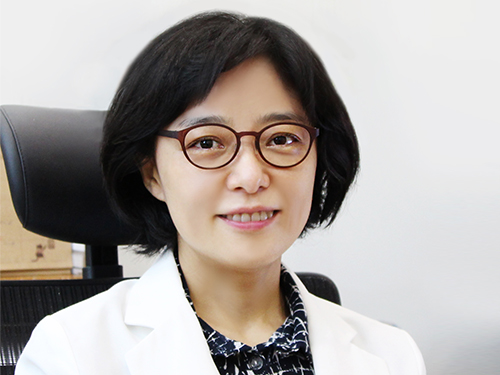 KAIST Clinic's Dr. Joo-yeon Kim Receives Minister's Award
Dr. Joo-yeon Kim receives citation on “The Fifth Tuberculosis Prevention Day” for her contribution to campus tuberculosis outbreak prevention.
Dr. Joo-Yeon Kim, the general manager of medical services of KAIST Clinic, received an award from the Korean Ministry of Health and Welfare on March 24, 2015. The award ceremony took place during “The Fifth Tuberculosis Prevention Day,” hosted by the Ministry of Health and Welfare and supervised by the Korea Centers for Disease Control and Prevention. The event was held at Seoul Sejong Cultural Center with 300 distinguished guests in attendance including the Minister of Health and Welfare, the Committee Members of the National Assembly Health and Welfare Committee, and the Director of Korea Centers for Disease Control Prevention.
The award acknowledges Dr. Kim’s contribution to curbing a tuberculosis (TB) outbreak on KAIST’s campus in 2013. In cooperation with the Infectious Disease Prevention Committee in KAIST, Korea Centers for Disease Control and Prevention, and Yuseong Public Health Centre, Dr. Kim’s swift treatment and rigorous control of both TB and latent TB patients prevented further outbreaks.
The KAIST Clinic is the first university-affiliated clinic established in September 2010 after Neil Pappalardo, the President of MEDITEC in the US, donated $2.5 million to KAIST. It is currently running 10 medical departments including those in family medicine, stress clinic, and dentistry to provide medical care to students and staff.
Every March 24 marks the annual “Tuberculosis Prevention Day” and “World Tuberculosis Day.” The “World Tuberculosis Day” was established in 1982 to promote TB prevention and early detection. It commemorated the 100th year anniversary of the discovery of M. tuberculosis on March 24, 1883 by the German bacteriologist Robert Koch.
According to the TB Prevention Act (Article 4), Korea marks “The Tuberculosis Prevention Day” alongside the “World Tuberculosis Day” on March 24 to raise public awareness of the magnitude of the disease and the importance of prevention.
2015.03.25 View 9122
KAIST Clinic's Dr. Joo-yeon Kim Receives Minister's Award
Dr. Joo-yeon Kim receives citation on “The Fifth Tuberculosis Prevention Day” for her contribution to campus tuberculosis outbreak prevention.
Dr. Joo-Yeon Kim, the general manager of medical services of KAIST Clinic, received an award from the Korean Ministry of Health and Welfare on March 24, 2015. The award ceremony took place during “The Fifth Tuberculosis Prevention Day,” hosted by the Ministry of Health and Welfare and supervised by the Korea Centers for Disease Control and Prevention. The event was held at Seoul Sejong Cultural Center with 300 distinguished guests in attendance including the Minister of Health and Welfare, the Committee Members of the National Assembly Health and Welfare Committee, and the Director of Korea Centers for Disease Control Prevention.
The award acknowledges Dr. Kim’s contribution to curbing a tuberculosis (TB) outbreak on KAIST’s campus in 2013. In cooperation with the Infectious Disease Prevention Committee in KAIST, Korea Centers for Disease Control and Prevention, and Yuseong Public Health Centre, Dr. Kim’s swift treatment and rigorous control of both TB and latent TB patients prevented further outbreaks.
The KAIST Clinic is the first university-affiliated clinic established in September 2010 after Neil Pappalardo, the President of MEDITEC in the US, donated $2.5 million to KAIST. It is currently running 10 medical departments including those in family medicine, stress clinic, and dentistry to provide medical care to students and staff.
Every March 24 marks the annual “Tuberculosis Prevention Day” and “World Tuberculosis Day.” The “World Tuberculosis Day” was established in 1982 to promote TB prevention and early detection. It commemorated the 100th year anniversary of the discovery of M. tuberculosis on March 24, 1883 by the German bacteriologist Robert Koch.
According to the TB Prevention Act (Article 4), Korea marks “The Tuberculosis Prevention Day” alongside the “World Tuberculosis Day” on March 24 to raise public awareness of the magnitude of the disease and the importance of prevention.
2015.03.25 View 9122 -
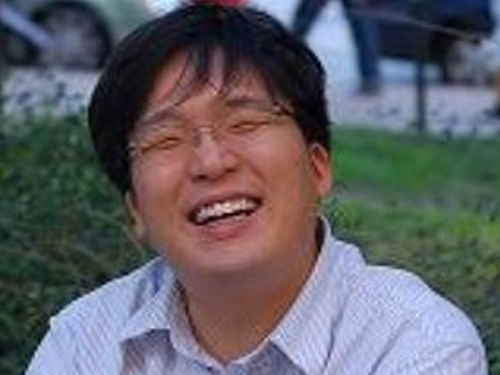 Dr. Dong-Hee Chung Honored with OYRA by Korean Physicists in America
Dr. Dong-Hee Chung, a KAIST alumnus (class of 2002) who is currently a professor of the Physics Department at the Pennsylvania State University (Penn State), received the 2015 Outstanding Young Researcher Award (OYRA) by the Association of Korean Physicists in America (AKPA).
The award ceremony was held on March 3, 2015 at AKPA’s annual conference. According to AKPA, Dr. Chung was recognized for his research achievements in the fields of the early universe, dark energy, and galaxy formation.
Dr. Chung finished both his undergraduate and graduate degrees at KAIST and received his doctorate in 2004 from the University of Texas at Austin. He was appointed a professor at Penn State in 2014.
2015.02.27 View 8211
Dr. Dong-Hee Chung Honored with OYRA by Korean Physicists in America
Dr. Dong-Hee Chung, a KAIST alumnus (class of 2002) who is currently a professor of the Physics Department at the Pennsylvania State University (Penn State), received the 2015 Outstanding Young Researcher Award (OYRA) by the Association of Korean Physicists in America (AKPA).
The award ceremony was held on March 3, 2015 at AKPA’s annual conference. According to AKPA, Dr. Chung was recognized for his research achievements in the fields of the early universe, dark energy, and galaxy formation.
Dr. Chung finished both his undergraduate and graduate degrees at KAIST and received his doctorate in 2004 from the University of Texas at Austin. He was appointed a professor at Penn State in 2014.
2015.02.27 View 8211 -
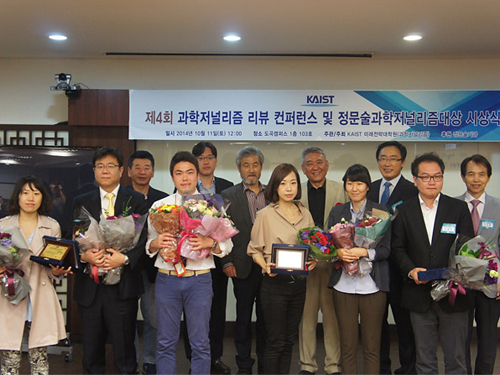 KAIST's Masters of Science Journalism Presents the 4th Annual Moon-Sul Chung Award
The Masters of Science Journalism (MSJ) program at the Graduate School of Future Strategy, KAIST, hosted a conference and presented its fourth annual Moon-Sul Chung Award to the Hankyoreh newspaper at KAIST’s Seoul campus on October 11, 2014.
MSJ organized the conference to review major issues reported in the Korean news in the context of the sciences, for example, how the Korean media covered the tragic accident of the Sewol Ferry, a passenger ship that capsized and eventually sank with hundreds of passengers on board in the waters off the southern coast of Korea on April 16, 2014. Participants of the conference discussed the approaches taken by the media to report science-related issues such as mechanical problems of the ship and technical errors made by the operator.
MSJ conferred its annual award to a Hankyoreh news team which covered the Sewol incident. The award is named for Moon-Sul Chung, a philanthropist who created a scholarship fund for the school in 2011 to recognize news organizations that have striven to report social issues in a fair and balanced manner.
2014.10.14 View 7019
KAIST's Masters of Science Journalism Presents the 4th Annual Moon-Sul Chung Award
The Masters of Science Journalism (MSJ) program at the Graduate School of Future Strategy, KAIST, hosted a conference and presented its fourth annual Moon-Sul Chung Award to the Hankyoreh newspaper at KAIST’s Seoul campus on October 11, 2014.
MSJ organized the conference to review major issues reported in the Korean news in the context of the sciences, for example, how the Korean media covered the tragic accident of the Sewol Ferry, a passenger ship that capsized and eventually sank with hundreds of passengers on board in the waters off the southern coast of Korea on April 16, 2014. Participants of the conference discussed the approaches taken by the media to report science-related issues such as mechanical problems of the ship and technical errors made by the operator.
MSJ conferred its annual award to a Hankyoreh news team which covered the Sewol incident. The award is named for Moon-Sul Chung, a philanthropist who created a scholarship fund for the school in 2011 to recognize news organizations that have striven to report social issues in a fair and balanced manner.
2014.10.14 View 7019